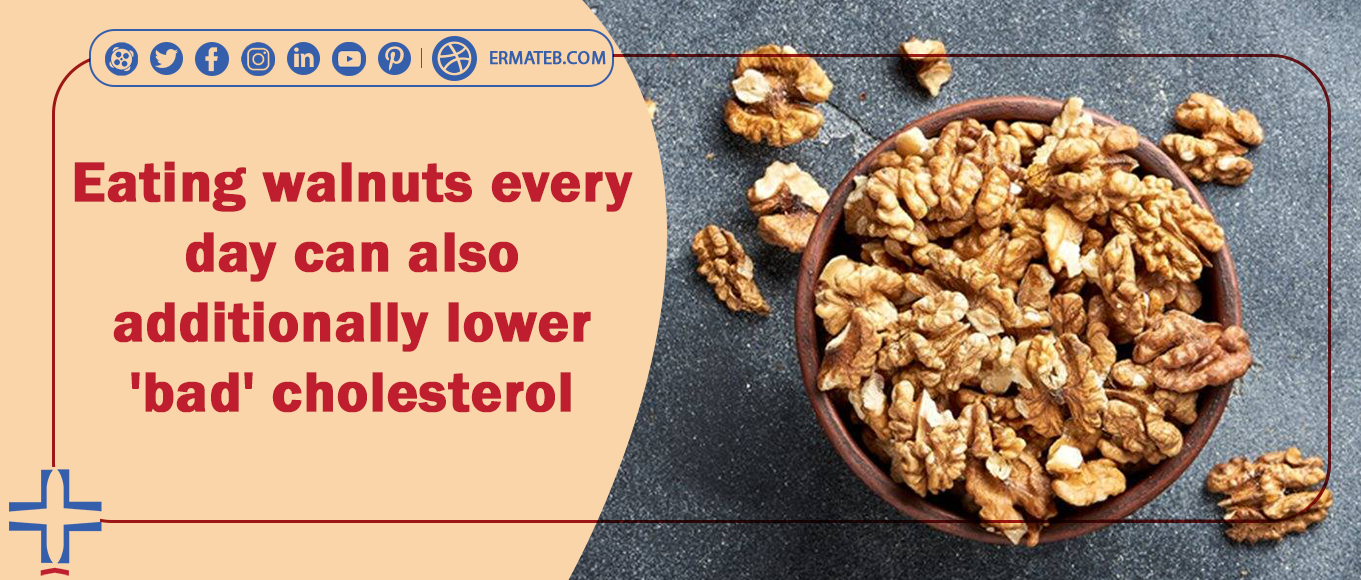
A developing frame of clinical studies shows that walnuts, which can be excessive in omega-three fatty acids, can also additionally defend against coronary heart ailment.
Over the years, some researchers have investigated whether or not ingesting walnuts would possibly lessen cardiovascular hazard factors.
For instance, a 2019 meta-analysisTrusted Source said better walnut intake with a decrease cardiovascular ailment prevalence and mortality, consisting of decrease coronary heart ailment prevalence and mortality and decrease atrial fibrillation.
A new observation, which seems as a studies letter withinside the American Heart Association magazine Circulation, investigates whether or not the addition of walnuts to the day-by-day weight loss plan for two years affects levels of cholesterol, specifically. Moreover, this observation was especially for older adults.
The authors located that consisting of walnuts withinside the weight loss plan reduced the whole LDL cholesterol and modestly reduced degrees of LDL cholesterol, which humans frequently discuss as “bad” cholesterol.
Additionally, the scientists measured the members’ subclasses of LDL cholesterol. One of those subclasses — small dense LDL debris — are greater frequently related to atherosclerosis, which happens while fatty deposits building up withinside the arteries.
In their observation, they located that day-by-day intake of walnuts decreased the variety of overall LDL debris and small LDL debris.
Dr. Ros does now no longer hesitate to sing the praises of walnuts, which he consists of in his very own weight loss plan. “Walnuts have a most fulfilling composition of vitamins and bioactive, consisting of large quantities of alpha-linolenic acid, the vegetable omega-three fatty acid, the very best polyphenol content material of all nuts, and phytomelatonin,” he explained.
In this observation, the studies indicate, consistent with Dr. Ros, that “frequently consuming walnuts will decrease your LDL cholesterol and enhance the excellent of LDL debris, rendering them much less atherogenic (much less vulnerable to input the arterial wall and building up atherosclerosis, the premise of cardiovascular diseases), and this may arise without undesirable weight advantage notwithstanding the excessive fat (healthful vegetable fat, though) content material of walnuts.”
Dr. Ros instructed MNT he elected to take in this observation due to the fact no different studies had checked out lipoprotein composition, which, he said, “can offer extra perception into the antiatherogenic capability of walnuts.”
Overall, 636 members elderly 63–seventy-nine years finished the observation. They all resided in both Barcelona, Spain, or Loma Linda, CA.
Of the members, 67% had been female. The members had been cognitively healthful and had no full-size fitness conditions.
About 1/2 of the members had been taking capsules for excessive blood stress or hypercholesterolemia, which, consistent with Dr. Ros, is standard for this older grownup population. Of the members, 32% had been taking statins.
The researchers advised one institution of the members now no longer to devour any walnuts. The different institutions included 1/2 of a cup of uncooked walnuts into their day-by-day meals. Health practitioners monitored the members, searching out how properly they had been following their weight loss plan and any adjustments to their weight, each different month.
The researchers examined the members’ levels of cholesterol and analyzed the attention and length of lipoproteins with nuclear magnetic resonance spectroscopy.
Over the direction of the observe, the members who fed on walnuts decreased their LDL levels of cholesterol with the aid of using a mean of 4. three milligrams in step with deciliter (mg/dl) and their overall LDL cholesterol with the aid of using a mean of 8. five mg/dl. The members withinside the walnut institution decreased their variety of overall LDL debris with the aid of using 4.three% and of small LDL debris with the aid of using 6.1%.
Among the members who fed on walnuts, LDL cholesterol adjustments differed with the aid of using sex. In males, LDL cholesterol fell with the aid of using 7.9%. In females, it fell with the aid of using 2.6%.

